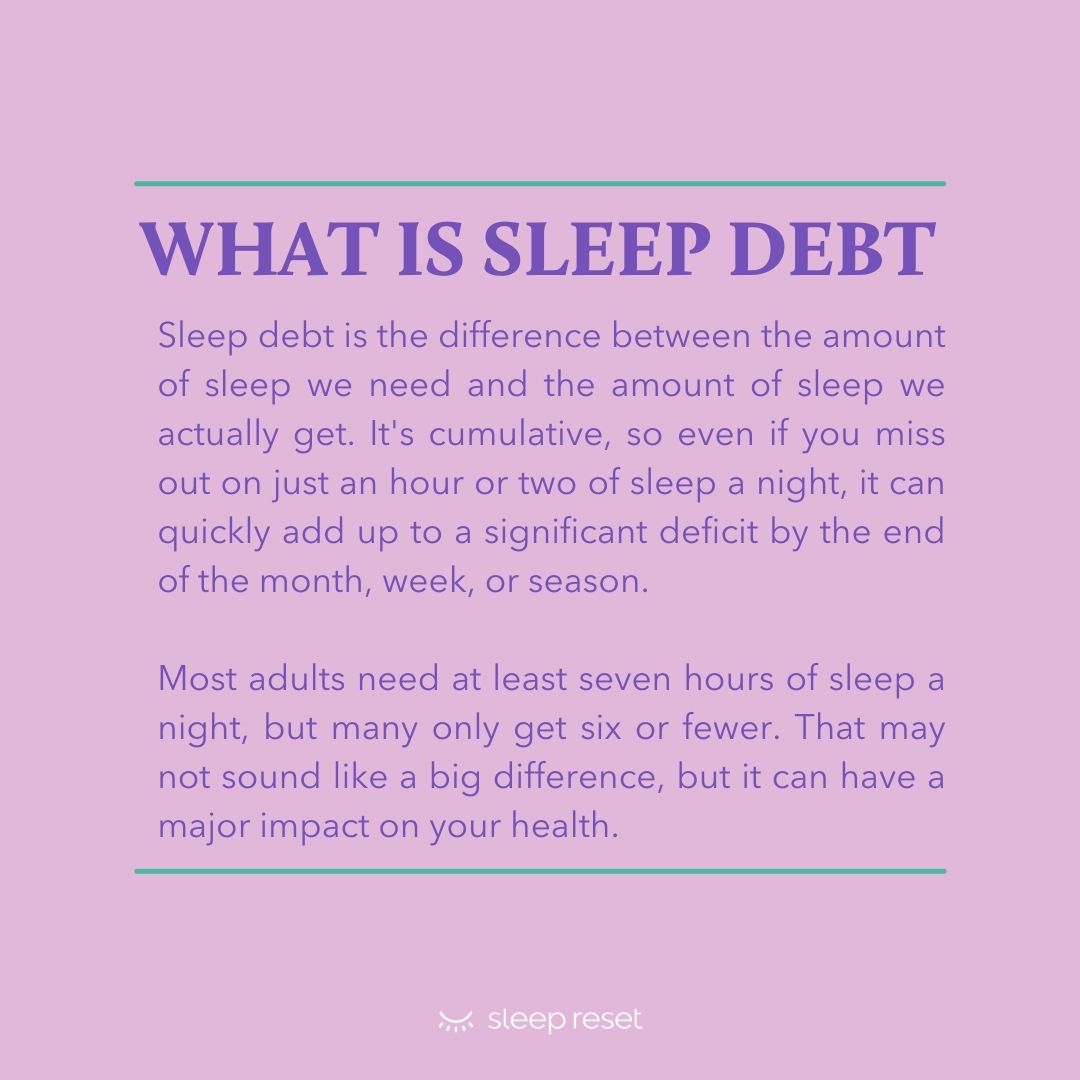
Sleep debt is the difference between the amount of sleep we need and the amount of sleep we actually get. It's cumulative, so even if you miss out on just an hour or two of sleep a night, it can quickly add up to a significant deficit by the end of the month, week, or season.
Dr. Shiyan Yeo, Internal Medicine Physician, Sleep Medicine Expert:
“Sleep debt is real—your brain and body accumulate fatigue over time, and catching up isn’t as simple as sleeping in on weekends.”
Most adults need at least seven hours of sleep a night, but many only get six or fewer. That may not sound like a big difference, but it can have a major impact on your health.

There are a number of different ways that sleep debt can manifest itself. The most obvious is fatigue, but it can also lead to problems with mood, concentration, and memory. You may find yourself getting irritable or anxious more easily, and you may have trouble making decisions or completing tasks.
In extreme cases, sleep debt can cause hallucinations and delusions. It can also lead to microsleep, which is when you briefly fall asleep without realizing it. This can be extremely dangerous if you're driving or operating machinery.
If your sleep deprivation becomes chronic, your brain may compensate, so you don't feel especially tired. However, research has shown that your physical and mental performance still declines significantly, even if you don't feel sleepy.
Dr. Samantha Domingo, Sleep Expert, Clinical Health Psychologist:
“Chronic sleep debt can impair mood, memory, and metabolism. Regular, sufficient sleep is the only long-term solution.”
Sleep debt can have a number of effects on your health, both in the short and long term. Fatigue makes it difficult to concentrate or be productive in the short term. You may also find yourself getting sick more easily.
In the long term, sleep debt has been linked to a number of serious health conditions, including obesity, heart disease, and diabetes. It can also contribute to mental health problems such as depression and anxiety.
The good news is that, yes, it is possible to catch up on sleep. However, it takes time and commitment. Catching up on sleep on the weekend may make you feel more rested, but it can further disrupt your natural circadian rhythm and sleep schedule.
The higher your sleep debt, the longer it will take to clear it.

If you're carrying a sleep debt, the best way to recover is to gradually increase the amount of sleep you get each night until you're back to seven or eight hours. How long does it take to recover from sleep deprivation? It may take a week or longer, but it's important to be patient and stick with it.
In the meantime, there are a few specific things you can do to get back on track and help yourself feel more rested:
The best way to avoid sleep debt is to make sure you're getting enough sleep on a regular basis. Most adults need seven or eight hours of sleep each night. If you find yourself regularly getting less than that, consider making some changes to your lifestyle.
If you're concerned about your sleep habits, Sleep Reset can help. We offer actionable advice that suits your unique situation.
Take the Sleep Quiz to get personalized recommendations for better rest.

Dr. Areti Vassilopoulos | Psychologist | Sleep Medicine Expert
Dr. Vassilopoulos is the Clinical Content Lead for Sleep Reset and Assistant Professor at Yale School of Medicine. She has co-authored peer-reviewed research articles, provides expert consultation to national nonprofit organizations, and chairs clinical committees in pediatric health psychology for the American Psychological Association. She lives in New England with her partner and takes full advantage of the beautiful hiking trails.